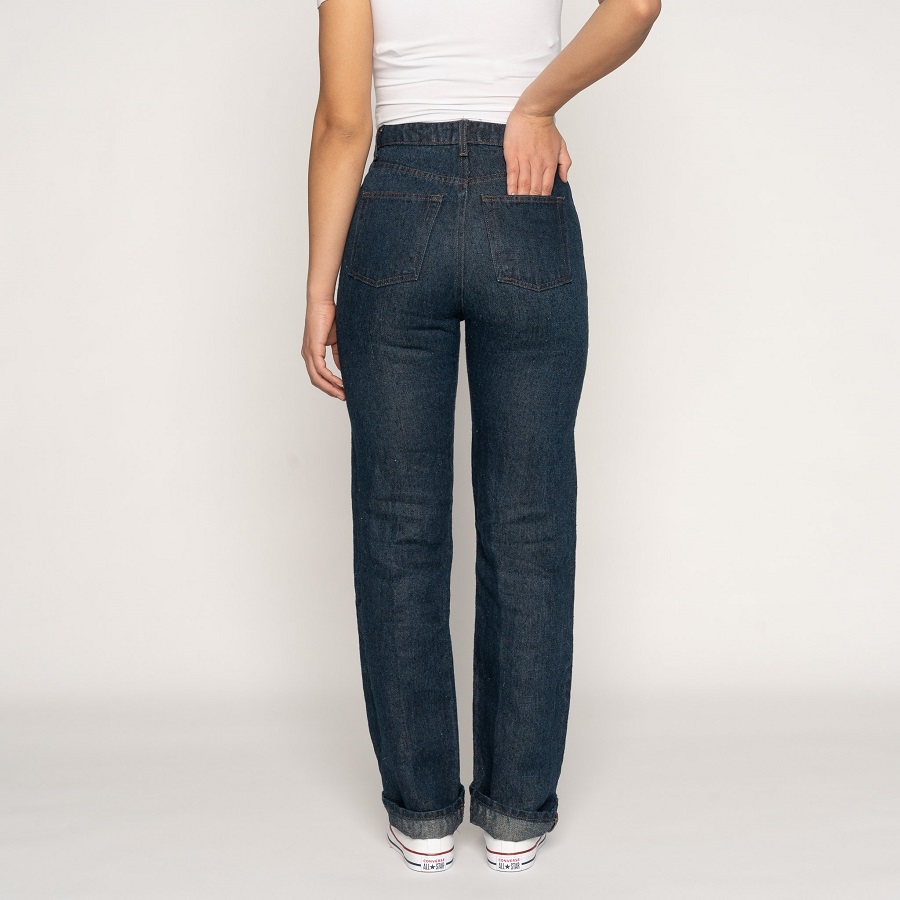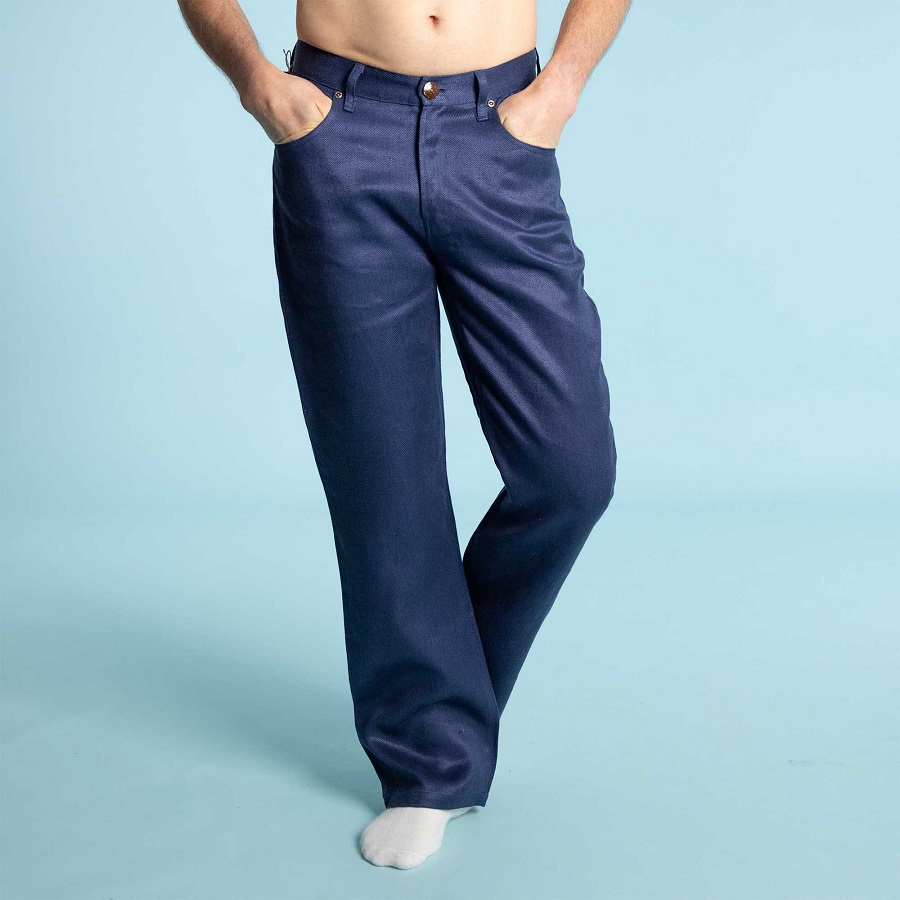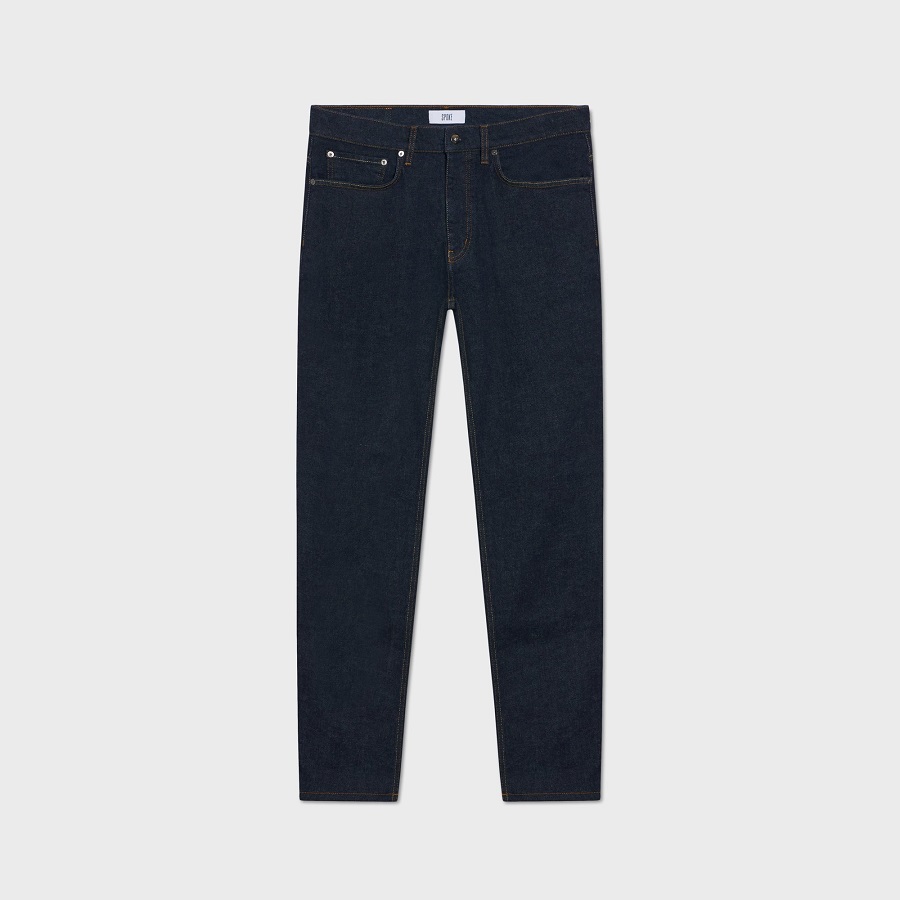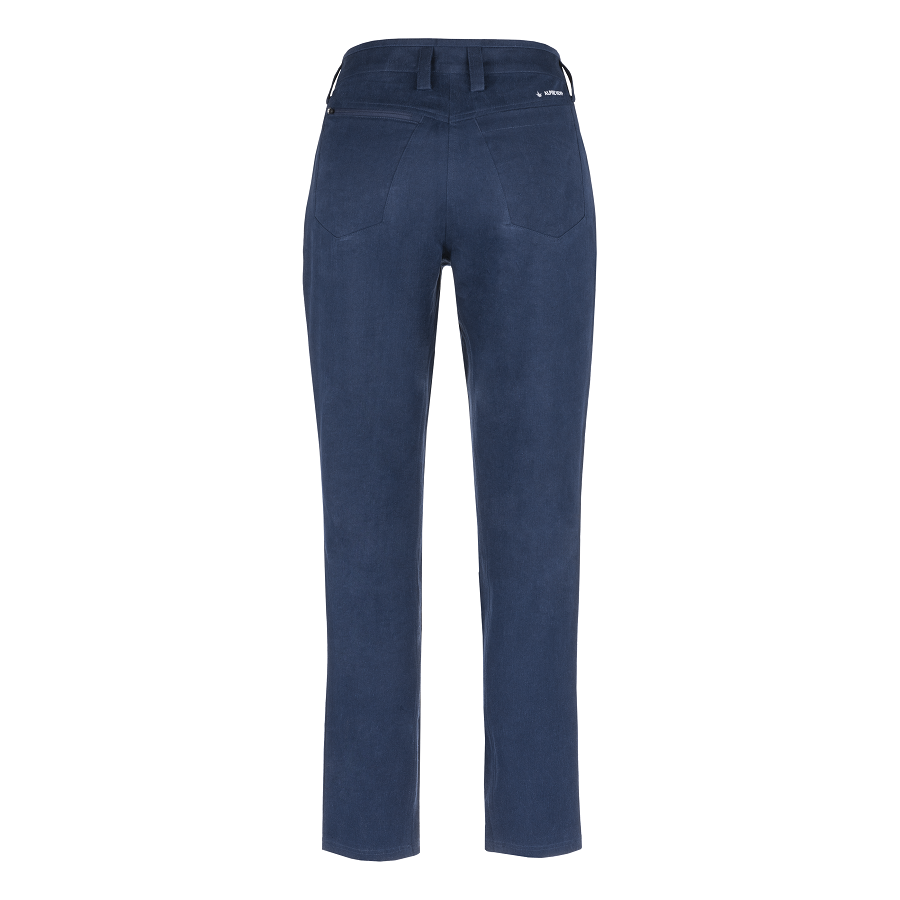Introduction
As the fashion industry faces increasing scrutiny over its environmental impact, consumers are becoming more aware of the need for sustainable choices. Among these choices, hemp jeans stand out as an eco-friendly alternative to traditional denim. With their unique benefits, hemp jeans offer a glimpse into a more sustainable future for fashion. Here, we will explore the advantages of choosing hemp jeans, emphasizing their environmental, economic, and health benefits.
 The Environmental Advantages of Hemp
The Environmental Advantages of Hemp
Rapid Growth and Low Resource Use
Hemp is renowned for its rapid growth cycle. It can reach maturity within 90 to 120 days, making it one of the fastest-growing crops. It requires significantly less water compared to cotton, using only half the amount during its cultivation. The robust nature of the hemp plant means it can thrive in a variety of soil conditions, often without the need for chemical fertilizers or pesticides. This low-resource demand makes hemp farming more sustainable and less taxing on the environment.
Carbon Sequestration
One of the standout qualities of hemp is its ability to sequester carbon. During its growth, a single hectare of hemp can absorb up to 15 tons of carbon dioxide from the atmosphere, making it an effective tool in combating climate change. By choosing hemp jeans, consumers support a process that not only reduces atmospheric CO2 levels but also promotes a healthier planet.
Biodegradability
Unlike conventional denim, which can take decades to decompose, hemp is a natural fiber that is fully biodegradable. When discarded, hemp jeans will break down and return to the earth without leaving a significant environmental footprint. This feature helps reduce the amount of waste that ends up in landfills, further curbing the fashion industry’s waste crisis.
Economic Benefits
Supporting Sustainable Agriculture
By choosing hemp jeans, consumers contribute to a growing industry that prioritizes sustainable agricultural practices. The demand for hemp products supports farmers who are committed to environmentally responsible practices, potentially revitalizing rural economies and providing livelihoods for those who grow this versatile crop.
Job Creation
The rising popularity of hemp is driving job creation in various sectors. From farming to production and retail, many new roles are being created to meet demand. This burgeoning industry can lead to job opportunities that emphasize sustainability and environmental responsibility, helping to further bolster local economies.
Reduced Water and Energy Costs
Hemp farming requires less water and energy compared to other crops, particularly cotton. This factor not only makes it a greener choice but also leads to cost savings for farmers. As the industry scales, these savings can translate into lower prices for consumers, making jeans an attractive and sustainable option.
Health Benefits
Natural Resistance to Pests
Hemp is naturally resistant to many pests and diseases, reducing the need for chemical pesticides and fertilizers in its cultivation. This feature results in a cleaner product that is less likely to contain harmful residues. Consumers can feel more confident about the safety of their clothing, knowing it has been grown without harmful chemicals.
Hypoallergenic Properties
Hemp fiber is known for its hypoallergenic properties, making it an excellent choice for individuals with sensitive skin. Unlike conventional denim, hemp fibers are softer and do not provoke allergies or skin irritations, making jeans suitable for a wide range of consumers.
Breathability and Comfort
Hemp fibers have natural moisture-wicking properties, allowing the fabric to breathe and keeping wearers cool in warmer temperatures. This comfort is accompanied by exceptional durability. Hemp jeans can withstand regular wear and tear better than conventional denim, often lasting longer and providing more value over time.
Fashion Meets Sustainability
Versatility and Style
Hemp jeans are available in a myriad of styles and designs, catering to diverse fashion preferences. From relaxed fits to tailored styles, hemp denim can easily adapt to the latest trends. Moreover, the durability of hemp means that these pieces maintain their shape and color longer, ensuring they remain stylish through changing wardrobes.
Innovative Blends
Fashion brands are increasingly experimenting with hemp blends, combining it with other sustainable fibers such as organic cotton and Tencel. These innovations not only enhance the texture and comfort of the fabric but also expand its appeal to a broader audience. As sustainability becomes a priority for more brands, the options for stylish hemp garments will continue to grow.
Ethical Production
Many companies producing hemp jeans prioritize ethical labor practices, ensuring fair wages and working conditions for their employees. By choosing brands that commit to sustainable and ethical practices, consumers can feel good about their fashion choices and their impact on global labor standards.
The Environmental Cost of Conventional Denim
Before we explore the benefits of hemp jeans, it’s essential to understand the environmental toll of traditional denim production. Conventional denim, primarily made from cotton, contributes significantly to water scarcity, soil degradation, and pesticide pollution. The cotton industry uses approximately 2.6% of the world’s arable land yet consumes over 24% of the world’s insecticides and 11% of pesticides. Additionally, the dyeing process of denim utilizes vast amounts of water, leading to further degradation of local ecosystems.
The fast-fashion culture exacerbates this problem, promoting quick production cycles that often overlook sustainable and ethical practices. The demand for new styles fosters a throwaway culture, where garments are worn a few times and discarded. The alarming statistics of textile waste testify to an industry in need of a radical rethink.
The Advantages of Hemp as a Sustainable Fabric
- Eco-Friendly Cultivation: Hemp is known for its incredibly low environmental footprint. It requires far less water compared to cotton—up to 50% less—as it can thrive in diverse soil conditions. Additionally, hemp grows quickly, typically maturing in just 90 to 120 days. This rapid growth cycle allows for multiple harvests in a single year.
- Natural Pest Resistance: Hemp plants are naturally resistant to pests, meaning they require minimal chemical fertilizers and pesticides. This characteristic not only reduces pollution but also improves soil quality, promoting a healthier ecosystem.
- Biodegradability: Unlike synthetic fibers, which can take hundreds of years to decompose, hemp is 100% biodegradable. When disposed of, it breaks down naturally without releasing harmful chemicals into the soil or water systems.
- Carbon Sequestration: Hemp is known for its ability to absorb CO2 from the atmosphere during its growth. Studies suggest that growing hemp can sequester more carbon per hectare than nearly any other commercial crop, thus playing a role in combating climate change.
Comfort Meets Durability
Hemp fabric is often hailed for its robustness and durability. Unlike conventional cotton, which tends to wear out over time, hemp fibers become softer with each wash. This feature not only enhances comfort but also extends the lifespan of the garment, reducing the frequency of replacements—one of the fundamental principles of sustainable fashion.
Moreover, hemp jeans resist mold and UV light, keeping them fresher for longer periods. Consumers can invest in high-quality hemp jeans knowing they are making a purchase that transcends ephemeral fashion trends. Investing in durable pieces contributes to a more sustainable wardrobe and can also save money in the long run.
Fashion Forward: Aesthetic Appeal
The stigma that hemp fabric is coarse or unattractive has long been left behind. Today’s hemp jeans come in a variety of styles, cuts, and colors. From skinny fits to relaxed silhouettes, designers are harnessing the unique texture and versatility of hemp to create fashionable pieces that appeal to a broad audience.
Fashion brands are increasingly experimenting with hemp blends, mixing it with organic cotton or other sustainable materials to enhance the overall aesthetic while retaining the environmental benefits. This fusion not only amplifies style options but also expands hemp’s tactile qualities, making it a chic alternative in the realm of sustainable fashion.
Ethical Production Practices
The conversation surrounding sustainability often intersects with social responsibility. Many hemp jeans brands are committed to ethical production practices, ensuring fair wages and safe working conditions for their workers. By choosing brands that prioritize transparency and sustainability, consumers can support ethical labor practices while wearing their eco-friendly jeans.
Becoming a Conscious Consumer
The shift toward sustainability lies not just in the materials but also in the choices we make as consumers. Transitioning to hemp jeans is a step towards a more sustainable wardrobe. When purchasing new clothing, consumers can ponder the ecological and ethical implications of their choices. Are the materials sourced sustainably? Are the workers treated fairly? Such questions can lead to more informed decisions that resonate with personal values.
Moreover, the rise of second-hand shopping options and platforms dedicated to sustainable fashion provides an accessible route for those looking to make sustainable choices. Pairing hemp jeans with vintage or pre-owned garments allows individuals to curate a unique wardrobe while keeping their environmental impact low.
Conclusion
Choosing hemp jeans is more than just a fashion statement; it’s a commitment to sustainability, ethical practices, and a healthier planet. With their environmental, economic, and health benefits, hemp jeans offer a glimpse into a future where fashion and ecology coalesce harmoniously. As consumers become increasingly aware of their purchasing power, hemp jeans serve as an excellent option for those looking to contribute positively to the world around them. By making the switch to hemp, you not only invest in high-quality, stylish clothing but also support sustainable practices that benefit the planet and future generations.


